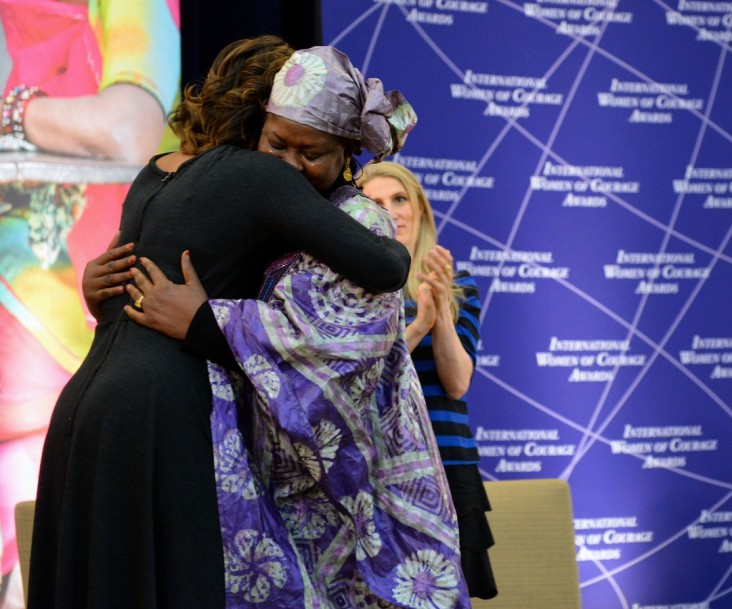
Fatimata Touré’s hard work might be unkown to many, but it has not gone unnoticed. She was recently recognized at the 2014 International Women of Courage Award Ceremony for her exceptional efforts to promote women's health rights and fight against acts of gender-based violence. She was one of 10 women to receive the award from the U.S. Department of State and the first lady of the United States, Michelle Obama.
Fatimata Touré is the head of Groupe de Recherche, de’Etude, de Formation Femme-Action (GREFFA)—or Women’s Action, Research, Study and Training Group—a local partner often supported by USAID in the fight against fistula (a childbirth injury caused by prolonged obstructed labor). Her work has had a tremendous impact on the lives of Malian women. GREFFA was recognized by its peers as a champion in 2013 by USAID’s Fistula Care project and in 2011 by the first lady of Mali.
During the terrorist occupation of northern Mali in 2012, Touré’s work became even more critical to women in her region. When extremists attacked the hospital in Gao, she helped fistula patients relocate and find much needed safety and care. As the conflict ensued, Touré supported victims of rape and forced marriage and publicly denounced perpetrators of gender-based violence. Her actions drew threats from the extremists and, even as her own home was under assault, Touré hid beneath her bed and used her mobile phone to continue documenting acts of violence against women.
Her limitless courage ensured that victims received medical care and that the abuse they suffered was not forgotten during the conflict.
“I could never dream this: a woman from one of the poorest countries in the world receiving such an award from the first lady of one of most powerful countries in the world,” said Touré. About her work during the crisis she said, “That is what I have always done. The only difference is that I decided to stay [in Gao] while everybody left.”
Touré also serves as the head of the Regional Forum on Reconciliation and Peace in Gao and continues advocating for justice and women’s rights.







Comment
Make a general inquiry or suggest an improvement.